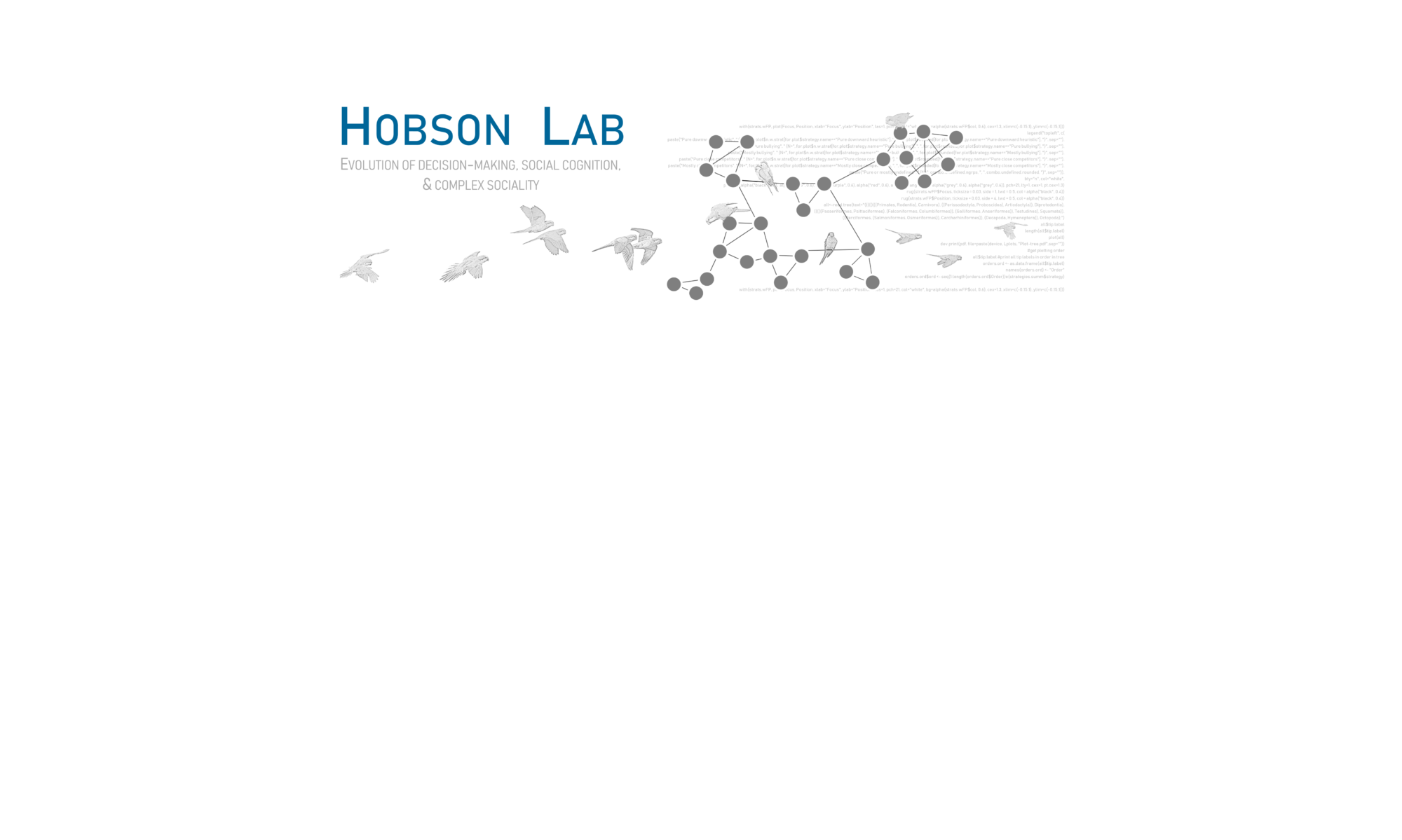Congratulations to Emily DuVal on winning the Katma Award!
The AOS Katma Award recognizes papers proposing ideas or testing theories that replace current dogma or settled opinion and that could change the course of thinking about the biology of birds. Papers may also include those that propose a largely untested idea or those that develop and advance it. The award may be given to research articles, short communications, or commentaries (including editorials and reviews) of any length published in any scientific venue within the two preceding years. This unique award was established in 2003 through a generous gift from the late Robert W. Storer. The 2024 Katma Award recipient is Emily DuVal for her paper, “Inferred Attractiveness: A generalized mechanism for sexual selection that can maintain variation in traits and preferences over time,” which was published in the journal PLoS Biology.
Emily DuVal, Ph.D., Professor, Department of Biological Sciences, Florida State University
Dr. Emily DuVal is a professor in the Department of Biological Sciences at Florida State University, and studies complex social behavior in wild birds. She earned her Ph.D. at the University of California Berkeley under Eileen Lacey and conducted postdoctoral research at the Max Planck Institute for Ornithology with Bart Kempenaers. Her ornithological interests began as a high school volunteer at the Florida Audubon Society Center for Birds of Prey and through undergraduate research at Rice University on Great-tailed Grackles, supervised by Kris Johnson and Joan Strassmann. Her current research investigates how strong sexual selection leads to evolutionary change, the evolution of cooperative reproduction, and mate choice in Lance-tailed Manakins. She also collaborates on studies of cooperative breeding in Brown-headed Nuthatches. Research on Lance-tailed Manakins is supported by an NSF LTREB (long-term research in environmental biology) award, and previously by an NSF CAREER award, but data collection started in 1999 with early support by an AOU Blake Award (2000) and Marcia Brady Tucker Travel Award (2004). DuVal has been an AOU/AOS member since 2001, an AOS Elective Member since 2009, and a Fellow since 2016. When not conducting fieldwork on manakins, DuVal loves learning about robots with her son, training the family’s ridiculously energetic dog, and dancing salsa. She cites collaborating with the team of colleagues that created this manuscript as a highlight of her career.
Abstract: Sexual selection by mate choice is a powerful force that can lead to evolutionary change, and models of why females choose particular mates are central to understanding its effects. Predominant mate choice theories assume preferences are determined solely by genetic inheritance, an assumption still lacking widespread support. Moreover, preferences often vary among individuals or populations, fail to correspond with conspicuous male traits, or change with context, patterns not predicted by dominant models. Here, we propose a new model that explains this mate choice complexity with one general hypothesized mechanism, “Inferred Attractiveness.” In this model, females acquire mating preferences by observing others’ choices and use context-dependent information to infer which traits are attractive. They learn to prefer the feature of a chosen male that most distinguishes him from other available males. Over generations, this process produces repeated population-level switches in preference and maintains male trait variation. When viability selection is strong, Inferred Attractiveness produces population-wide adaptive preferences superficially resembling “good genes.” However, it results in widespread preference variation or nonadaptive preferences under other predictable circumstances. By casting the female brain as the central selective agent, Inferred Attractiveness captures novel and dynamic aspects of sexual selection and reconciles inconsistencies between mate choice theory and observed behavior.
Citation:
DuVal EH, Fitzpatrick CL, Hobson EA, Servedio MR (2023) Inferred Attractiveness: A generalized mechanism for sexual selection that can maintain variation in traits and preferences over time. PLoS Biol 21(10): e3002269. https://doi.org/10.1371/journal.pbio.3002269





